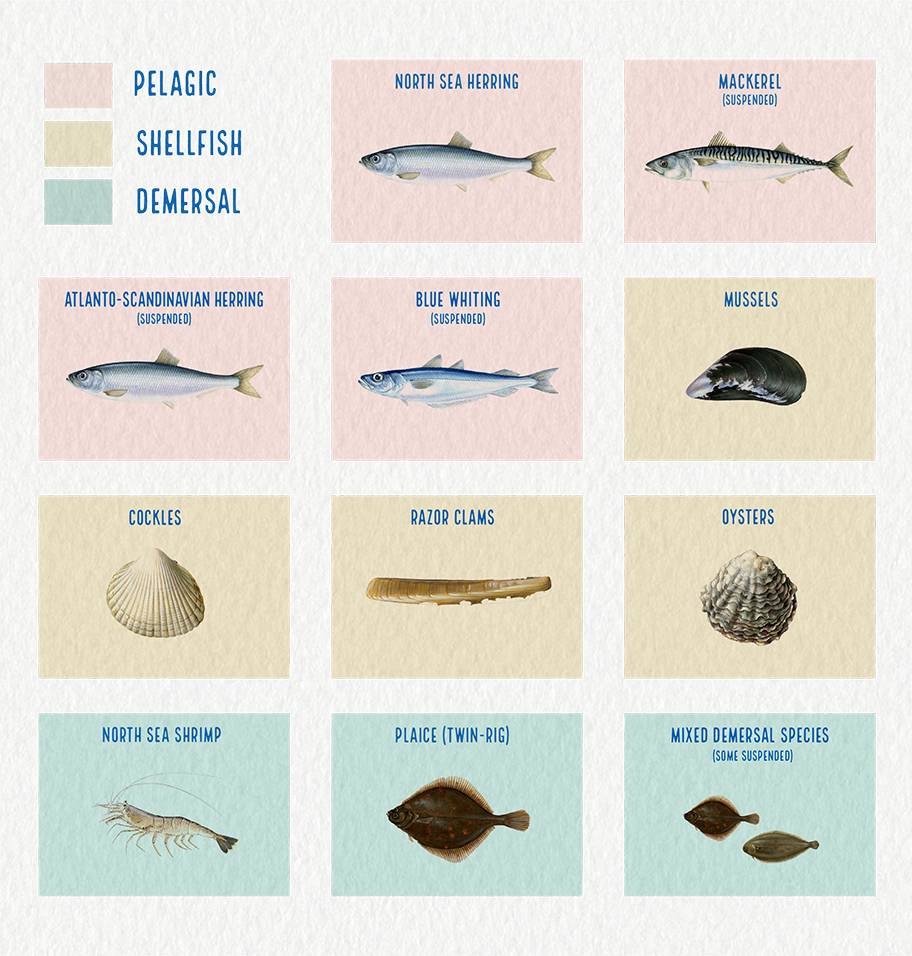A majority of Dutch fisheries participate in the MSC Program. A new report on the country’s fisheries, “Stand in the Water 2020”, shows how this has been achieved but also why climate change threatens progress.
Since the first Dutch fishery achieved MSC certification in 2006, the sector has moved at pace to make itself sustainable. Driven predominantly by increasing market demand for certified sustainable seafood, the number of Dutch fisheries meeting the MSC Fisheries Standard has continued to increase in the 15 years since. Measured both in number of vessels and volume of fish landed in 2019, some four-fifths of Dutch fisheries meet MSC’s global benchmark for sustainable fishing.
By the end of 2020, a total of 20 sustainably caught species, from mussels to plaice, were being landed in the Netherlands by 475 Dutch vessels holding MSC certificates. This shift reflects the increasing demand for sustainable seafood in the Netherlands and elsewhere. According to a 2020 survey conducted by global market research firm GlobeScan, one third of seafood consumers say they would now switch brands to one which protects the oceans.
 Fish species caught by Dutch MSC certified fisheries.
Fish species caught by Dutch MSC certified fisheries.
Safeguarding marine biodiversity
The MSC Fisheries Standard sets out requirements to ensure stocks remain healthy, fishing is carried out with minimal environmental impact and fisheries are managed effectively.
For Dutch fisheries this has meant changes, from one fishery avoiding gear damage to mussel beds to another mapping important habitats for young fish and other animals like birds. Approximately 50 improvements such as these have been made by Dutch fishers over the past decade and a half and it is because of this they have achieved and maintained their MSC certification.
The fishing grounds of Dutch fisheries stretch across the entire North-East Atlantic Ocean, feature several Marine Protected Areas (MPAs) and are home to a rich variety of marine flora and fauna. One area, known as the Dogger Bank, is a protected sandbank in the middle of the North Sea and forms an important food and spawning area for herring, plaice, whiting and cod. White-nosed dolphins and porpoises can also be seen there. The improvements made by fisheries operating in this area are essential to the preservation of biodiversity. You can learn more about the improvements in the Stand in the Water 2020 report (in Dutch).
 Protected areas found within the fishing grounds of Dutch MSC certified fisheries.
Protected areas found within the fishing grounds of Dutch MSC certified fisheries.
Impacts of climate change on fishing
Almost all Dutch MSC Fishery Assessments have involved input from scientists and conservationists, including Stichting de Noordzee and the Waddenvereniging. Stakeholder input is essential as it often results in better action plans to help a fishery improve its sustainability. This collaborative approach ensures that the latest scientific insights on fisheries, conservation and climate change are taken into consideration.
Climate change is having a profound impact on our oceans and marine life, with its effects changing the distribution of fish stocks and their food. This has been witnessed first-hand by Dutch fisheries operating in the North-East Atlantic Ocean.
As a result of climate change, European waters are warming. Pelagic species such as mackerel and Atlanto-Scandian herring have been observed by Dutch fishers to be moving north; fish are not restricted by national borders, economic zones of coastal states or existing quota agreements. As a result, there is a lack of agreement on how best to manage the newly distributed stock and a temporary MSC certification suspension is currently in place for a select group of Dutch fisheries. The MSC is working with partners to support these efforts and encourage a resolution.
The unexpected ways through which climate change can affect fish stocks, is a significant challenge for many countries balancing economic and environmental interests.
 Dutch shrimp vessel © MSC/ Saskia Lelieveld
Dutch shrimp vessel © MSC/ Saskia Lelieveld
Dutch fisheries contribute towards achieving global goals
To help put an end to overfishing worldwide, the MSC set a goal to have fisheries representing 30% of global marine catch engaged in the MSC program by 2030. This target reflects the urgency of the mounting pressure on our oceans and delivering UN Sustainable Development Goal (SDG) 14, which requires countries to conserve and use the oceans sustainably by 2030.
Of the 400 fisheries worldwide who were part of the MSC Program at the end of 2020, 11 were Dutch - or had worked in collaboration with Dutch fishing fleets. While modest in share, Dutch fisheries continue to make a substantial contribution at a national level and are leading a path that many could follow.
Dutch Minister of Agriculture, Nature and Fisheries (LNV) Carola Schouten says, “It is good news that Dutch fisheries are becoming increasingly sustainable. The MSC organisation - together with fishermen and advocates - has made an important contribution to this.”
But she also recognises that MSC certification is an incentive for continuous improvement:” Further sustainability of the fisheries remains important, also for the future. This requires not only the commitment of policy, but also the commitment of initiatives such as the MSC label.”

